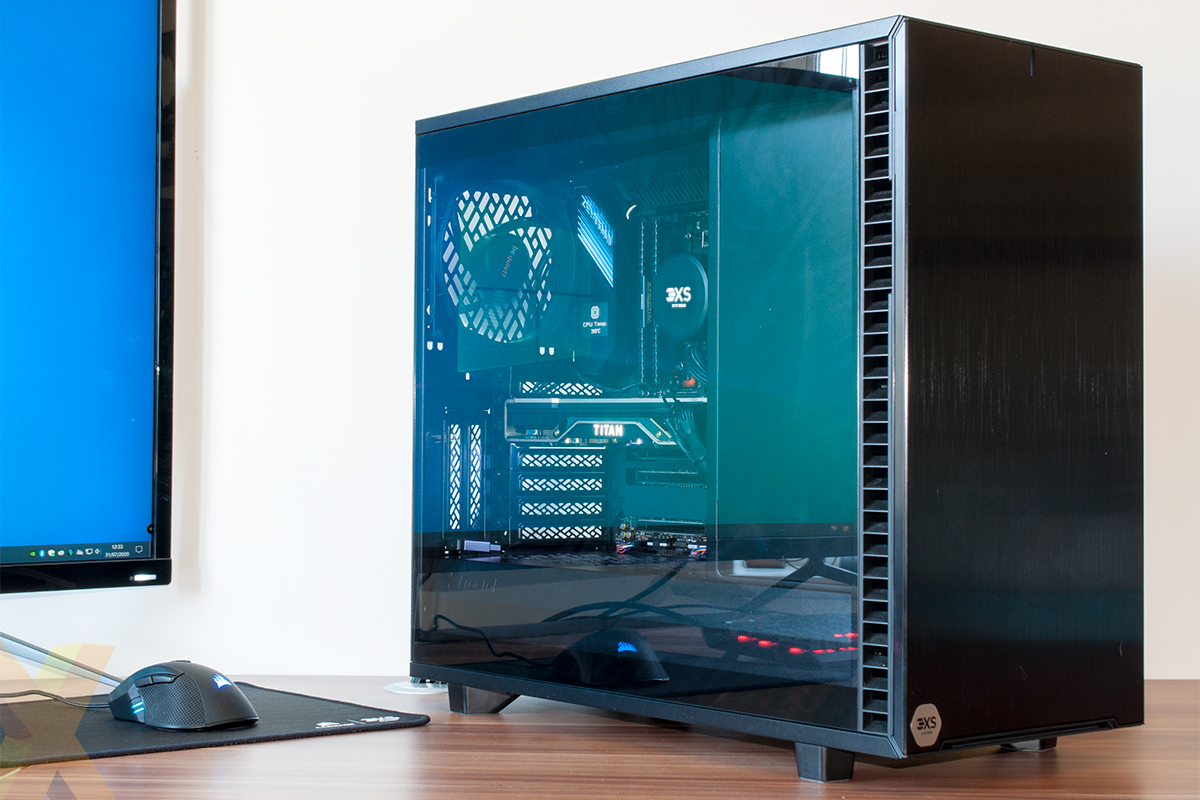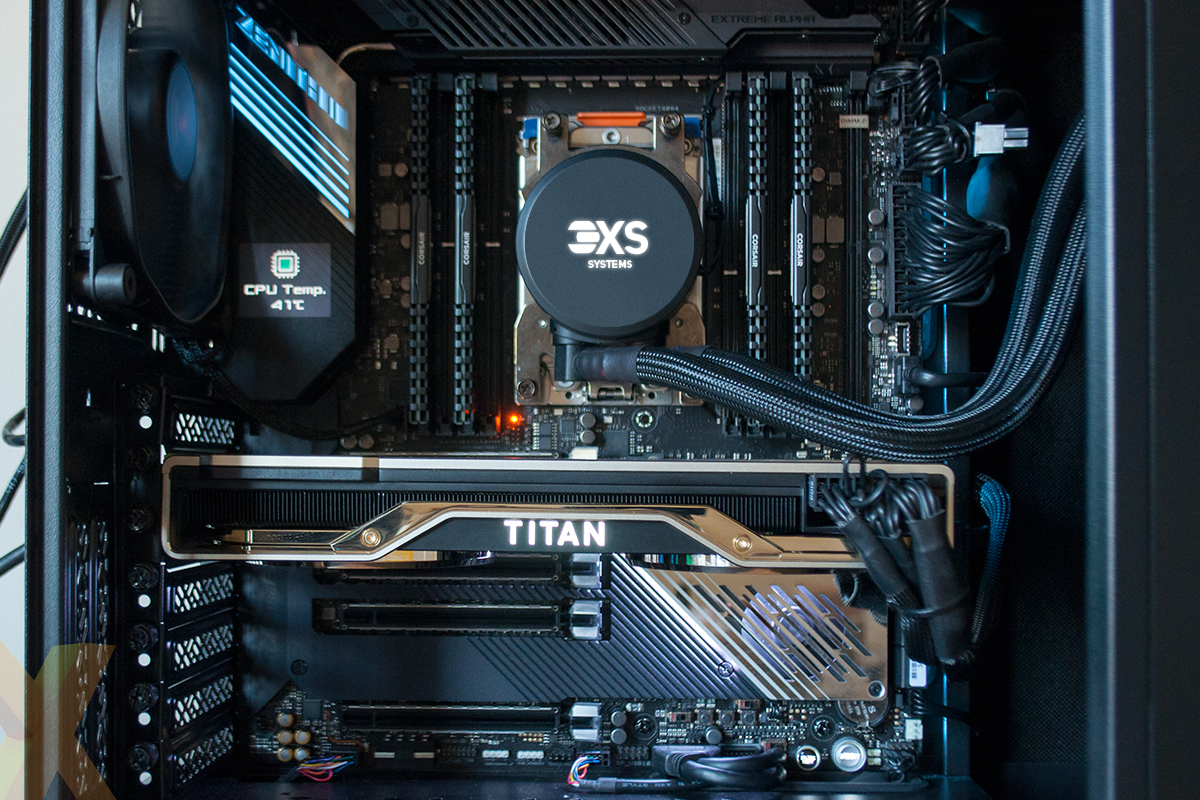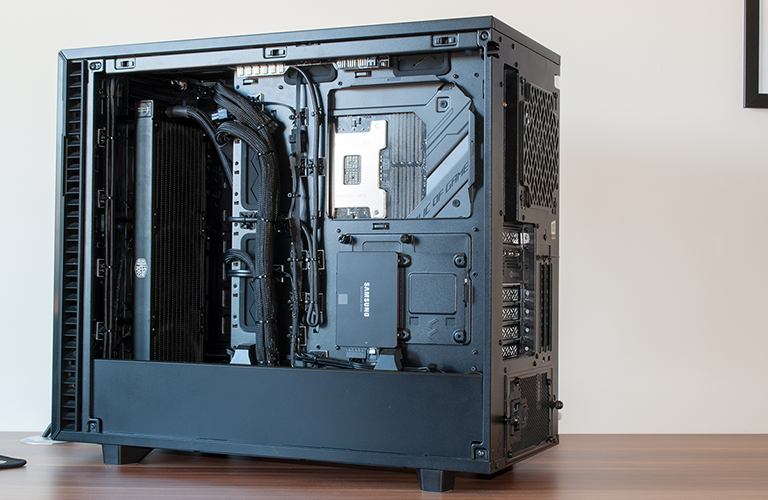Introduction
Most folks' predictions for 2020 have gone out the window. These are times the likes of which most of us have never before experienced, yet amid the frightful uncertainty of Covid-19, there are reasons for cautious optimism. The tech sector, in particular, sits at the forefront of this newfound potential. With a worldwide shift in working habits, sales of PC hardware are expected to benefit from an unforeseen blossom, representing real opportunity for a number of manufacturers.
Nvidia has responded by doubling down on RTX Studio, a certification program that promises to deliver "laptops and desktops purpose-built to power the world's most innovative minds." In a nutshell, any system wanting to carry the RTX Studio badge must feature a minimum set of hardware requirements - GeForce, Quadro or Titan RTX graphics, Intel Core i7 or equivalent, at least 16GB of memory and a 512GB SSD - and said PC is then validated and tested by Nvidia itself before heading to retail.
It is a sure-fire way of guaranteeing a workstation has ample muscle, and with over 50 creative apps now touting RTX acceleration, there's no denying the virtues of GPU-accelerated workloads. At the time of writing, two of the UK's best-known system integrators - PC Specialist and Scan Computers - are already onboard. We have RTX Studio review systems from both, starting first with Scan's all-singing, all-dancing 3XS RTX Studio Pro T1128T.
But hold on a minute, if you're in the market for a bullet-proof workstation PC, wouldn't you typically call upon the likes of Dell, HP or Lenovo, who have a trusted track record of enterprise-grade support? There's merit to that line of thinking, but if you prefer something a little more extravagant, the 3XS RTX Studio Pro T1128T definitely fits the bill.
Compelling Hardware
For the small sum of £10,999.99, Scan's mighty interpretation is designed to tempt Nvidia's target audience of creators, freelancers and movie/TV studios by packing some serious firepower. And we do mean serious. On the graphics front you get none other than a Titan RTX, whose 4,608 shader processors, 576 tensor cores, 72 dedicated ray-tracing cores and massive 24GB frame buffer make it a potent choice for both gaming and content creation.
Better still, the system is also eligible for Scan's 'GPU Upgrade Program.' The exact details are still being ironed out, but we're told "the program gives peace of mind to customers by providing a free upgrade path to a next-generation Nvidia graphics card when they are released later this year. At the time of release Scan will contact customers to arrange collection of the original Titan RTX graphics card and replace it with a next-gen GPU." Very handy, and such a scheme certainly helps diminish the risk of buying a Titan RTX so late in its life cycle.
In the CPU department, we have the monster that is AMD's Ryzen Threadripper 3990X. With 64 cores and 128 threads, this 280W chip is impressive ammunition for any workstation, and as if the stock numbers weren't impressive enough, Scan's engineers have switched on Precision Boost Overdrive with CPU Current set to 130 per cent, ensuring higher peak frequencies and benchmark-smashing results. All sound a bit much? The same base unit will be made available with 24- and 32-core Ryzen Threadripper processors for those seeking a more affordable solution.
What quickly becomes apparent is the fact that Scan's RTX Studio rig has a different aura to many of the gaming systems on the market today. RGB lighting is kept to an absolute minimum - those components equipped with LEDs are set to white out of the box - the Fractal Design Define 7 chassis gives the whole system a high-quality look and feel, and appreciating that bothersome noise levels are disruptive to work, the entire system is tuned to run quietly at all times.
To that end, the CPU is cooled by a 360mm Cooler Master ML360 TR4 liquid cooler mounted in the front of the case, the default radiator fans are swapped out in favour of a trio from be quiet!'s Silent Wings stable, while Fractal Design's rear exhaust has also been upgraded to a 140mm be-quiet! fan.
Finishing Touches
It's a grown-up piece of kit, and there's grown-up hardware throughout. The Asus ROG Zenith II Extreme Alpha motherboard, for example, offers support for PCIe 4.0, Wi-Fi 6, onboard 10Gbps Ethernet, and 20Gbps USB 3.2 Gen 2x2 Type-C. Want more? You've got it, in the form of 128GB (4x32GB) of Corsair Vengeance DDR4-3600 memory, a 2TB Corsair MP600 PCIe 4.0 NVMe M.2 SSD (plus a 4TB Samsung 860 Evo SSD for good measure), and a 1,600W Corsair AXi Titanium power supply. Everything and the kitchen sink.
Cable management, as you'd expect, is tidy throughout, and Scan preloads the Corsair SSD with a 64-bit install of Windows 10 Pro. The entire system is backed by the same three-year warranty as Scan's gaming rigs - meaning 12 months of onsite cover, followed by a further 24 months of return-to-base with parts and labour - and as an RTX Studio machine, you're entitled to three months' free membership to Adobe Creative Cloud.
An impressive rig, no doubt, though it is worth pointing out that outside of Nvidia validation and the aforementioned trial of Adobe Creative Cloud, RTX Studio certification doesn't offer a lot else in terms of exclusive incentive. If you're inclined to take the workstation into your own hands, the very same hardware can be acquired for around £9,500, while the purpose-built and extensively-tested RTX Studio Driver is a free download from the Nvidia website.
How else can Scan differentiate from the competition? One interesting attempt is the 3XS Cloud Rendering Service. Currently available to sample as a free proof of concept, the service employs multiple Nvidia Quadro RTX servers in datacentres dotted around the UK and allows customers to offload time-consuming renders from their local machine to the cloud, helping free-up local resources. Food for thought, but for now let's fire this beastie up and watch the benchmarks fly.












